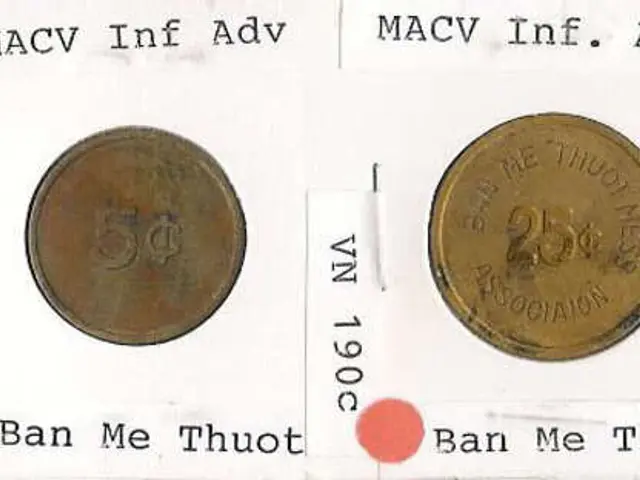Harnessing Autonomous AI Agents informing Tomorrow's Financial Decisions
AI Agents Set to Revolutionize Financial Investment Research
Welcome to the new age of finance, where intelligence and speed are the new currency. Once upon a time, human brains and spreadsheets ruled the roost. But with the advent of autonomous AI agents, all that is set to change, and the landscape will never be the same.
For a long time, Wall Street had been a tough nut to crack, resisting the advancement of technology. High stakes, precision demands, messy data, and non-stop pressure placed insurmountable obstacles in AI's path. But that didn't deter the allure of AI, and it wasn't long before fintech showed the world its magic.
The game-changer arrived in the form of automation, eliminating inefficiencies in investment research and due diligence. The rise of AI agents in finance is no flash in the pan - it's a turning point, a clear indication of the times.
Autonomous AI Agents: What Are They and How They Work?
Autonomous AI agents are sophisticated software designed to mimic human thinking. They are equipped with large language models, memory, and agent orchestration to tackle highly cognitive tasks that used to be the exclusive domain of humans. These AI agents quickly digest vast amounts of data, spot patterns, and return insights that once took weeks to uncover. It's not just semi-automation - it's a complete overhaul.
AI agents function like always-on digital analysts, tapping into sources ranging from SEC filings, earnings calls, and news feeds to patent databases, user reviews, and social media. Unlike traditional tools, these agents can interpret and connect the dots, framing context and delivering insights that can serve as strategic briefings. They go a step further and format it all into investor-ready slide decks, making it easier for decision-makers to act.
Tools like Wokelo AI, custom-built for institutional finance, are already gaining ground across esteemed firms such as KPMG, Berkshire Partners, EY, Google, and Guggenheim. These AI agents can scan over 100,000 live sources and produce high-quality research in minutes, transforming inefficiency into a superpower. In the world of M&A, AI-powered research tools can identify potential product offerings and synergy opportunities, helping investors and consultants discover valuable investment prospects in a fraction of the time. Real-time data analytics and on-demand deep dives enable us to catch early market signals and gain a competitive edge.
The evolution towards AI hasn't been a solo journey. The tools of yesteryears were reactive and inflexible; the new AI agents are nimble, contextual, and constantly learning. These tools are here to save us time, money, and human mistakes.
The Power of Pattern Recognition at Scale
Autonomous AI agents truly shine when it comes to scale. Human analysts hit cognitive limits, bring their unconscious biases to the table, and sometimes perform below their best. AI, on the other hand, ingests everything - deal data, news sentiment, customer reviews, social signals - without breaking a sweat. It can flag anomalies across quarterly reports, spot sector momentum before it trends, and tie disparate data points together to uncover market shifts too complex for human eyes.
For example, AI tools for financial research can detect early indicators of biotech breakthroughs or trace the downstream effects of major M&A moves across global supply chains. All without the extensive hours analysts are accustomed to. This is not about getting more tasks done, but also about harnessing literally superhuman pattern recognition power.
Best of all, the accuracy is unparalleled. Unlike humans, AI doesn't tire, and it never misses subtle signals hidden in data noise. This new level of accuracy upgrades the quality of insights firms are equipped with. In terms of overall productivity, the reduction in research hours per prospective deal is estimated to be between 50-70%, and the research effort required for diligence reports is slashed by 40%.
Challenges, But Solutions in Sight
AI agents may seem perfect, but they're far from it. Their effectiveness depends on the quality of data they're trained on. Feed them garbage, and you'll get garbage back, albeit faster. Ensuring the integrity of datasets is still the Achilles' heel of autonomous agents. To tackle this challenge, companies developing AI tools for financial research are diligently curating a vetted, ever-expanding set of high-integrity sources.
The next big hurdle is navigating the regulatory maze. Financial markets are heavily regulated, and any AI agent employed there must comply with the evolving legal and policy landscape. Companies delivering these tools to the broader market must be prepared for constant calibration, legal oversight, and collaboration between data science and compliance teams. Top solutions are already rolling out, featuring SOC 2-compliant, zero-trust architecture to ensure data privacy and drive highly-regulated industries like finance.
Accountability is another essential aspect when algorithms drive decisions. The logic behind an AI's call must always be transparent. Pioneers in AI for financial research are actively solving this challenge by employing explainable AI principles. While AI can crunch numbers, spot signals at superhuman speed, and even pass the Turing test, it is yet to replicate human capacity for judgment. As markets fluctuate, this can create a problem. This labyrinthine challenge highlights the need for human oversight and interference when required - a fact that ensures AI tools will never replace human experts, but rather complement their expertise.
Rethinking the Analyst's Role in the Age of AI
The financial analyst of the near future will morph into a curator, trainer, and strategic partner to the AI, rather than merely using AI. This shift in role demands a skill set upgrade, focusing on understanding machine learning, crafting effective prompts, interpreting black-box outputs, and identifying gaps in logic. The future does not portend doom and gloom for human analysts - instead, it represents an upgrade in their capabilities, allowing them to focus on making strategic decisions while freed from monotonous, data-heavy tasks.
What's Coming Next
The hybrid future of investment research seems set to be a collaboration between AI and humans. This means deeper integrations where AI learns from analyst feedback and constantly refines its output based on machine-human interaction. In the shortest time, multimodal agents, capable of analyzing not just text but also charts, audio, and video, will arrive. These agents will not just anticipate market moves, but also predict investor behavior. The future sees real-time collaboration between AI and human analysts, with AI producing top-notch research and working alongside analysts in the strategic decision-making process.
The early adopters are VCs, private equity teams, hedge funds, and asset managers, who are already leveraging AI to expand deal pipelines and tighten due diligence. Eventually, this will trickle down to retail investors, empowering everyday investors with elite-level insight.
Writing a New Chapter in Financial Investment Research
Clinging to traditional research models in finance would seem an unwise choice in the face of mounting evidence advocating AI's potential. Embracing a new paradigm will empower those who act first, giving them a distinct advantage. The future of investment research is all about human analysts working alongside AI, fueling a symbiotic partnership that could redefine the industry.
Using Artificial Intelligence in investing now means exploiting the power of pattern recognition at an unprecedented scale. Autonomous AI agents analyze vast amounts of data from a variety of sources, including SEC filings, earnings calls, news feeds, patent databases, user reviews, and social media, providing insights that once took humans weeks to uncover. These AI agents are set to revolutionize the traditional role of a financial analyst, evolving them into curators, trainers, and strategic partners. Through machine-human collaboration, autonomous AI agents could predict market moves and investor behavior, offering a real-time strategic advantage to early adopters like VCs, private equity teams, hedge funds, and asset managers.







